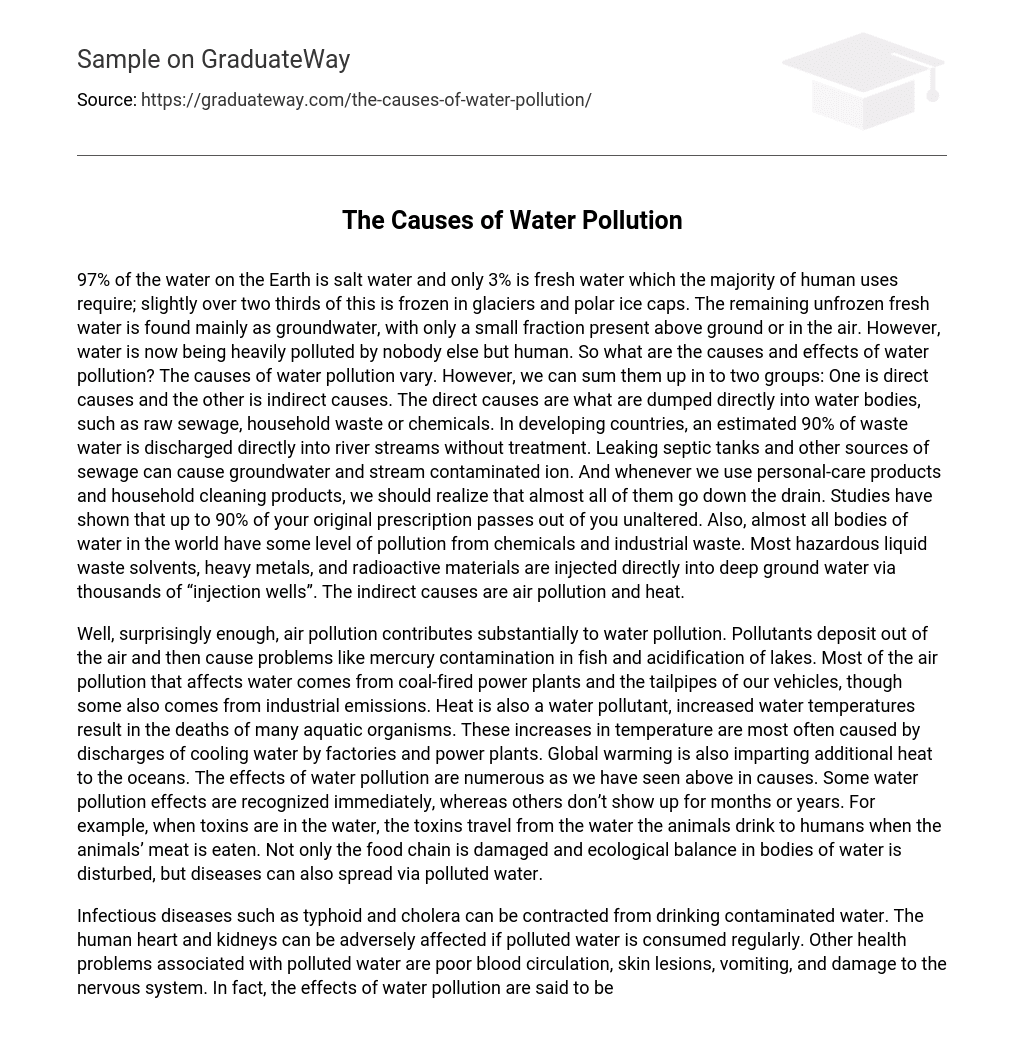97% of the water on the Earth is salt water and only 3% is fresh water which the majority of human uses require; slightly over two thirds of this is frozen in glaciers and polar ice caps. The remaining unfrozen fresh water is found mainly as groundwater, with only a small fraction present above ground or in the air. However, water is now being heavily polluted by nobody else but human. So what are the causes and effects of water pollution? The causes of water pollution vary. However, we can sum them up in to two groups: One is direct causes and the other is indirect causes. The direct causes are what are dumped directly into water bodies, such as raw sewage, household waste or chemicals. In developing countries, an estimated 90% of waste water is discharged directly into river streams without treatment. Leaking septic tanks and other sources of sewage can cause groundwater and stream contaminated ion. And whenever we use personal-care products and household cleaning products, we should realize that almost all of them go down the drain. Studies have shown that up to 90% of your original prescription passes out of you unaltered. Also, almost all bodies of water in the world have some level of pollution from chemicals and industrial waste. Most hazardous liquid waste solvents, heavy metals, and radioactive materials are injected directly into deep ground water via thousands of “injection wells”. The indirect causes are air pollution and heat.
Well, surprisingly enough, air pollution contributes substantially to water pollution. Pollutants deposit out of the air and then cause problems like mercury contamination in fish and acidification of lakes. Most of the air pollution that affects water comes from coal-fired power plants and the tailpipes of our vehicles, though some also comes from industrial emissions. Heat is also a water pollutant, increased water temperatures result in the deaths of many aquatic organisms. These increases in temperature are most often caused by discharges of cooling water by factories and power plants. Global warming is also imparting additional heat to the oceans. The effects of water pollution are numerous as we have seen above in causes. Some water pollution effects are recognized immediately, whereas others don’t show up for months or years. For example, when toxins are in the water, the toxins travel from the water the animals drink to humans when the animals’ meat is eaten. Not only the food chain is damaged and ecological balance in bodies of water is disturbed, but diseases can also spread via polluted water.
Infectious diseases such as typhoid and cholera can be contracted from drinking contaminated water. The human heart and kidneys can be adversely affected if polluted water is consumed regularly. Other health problems associated with polluted water are poor blood circulation, skin lesions, vomiting, and damage to the nervous system. In fact, the effects of water pollution are said to be the leading cause of death for humans across the globe. Moreover, water pollution can result in acid rain because it contains sulfate particles. Pollutants in the water will alter the overall chemistry of the water. In conclusion, the causes of water pollution are basically from human, and its effects do harm to the whole ecosystem and to us. So let’s start saving the water now.





